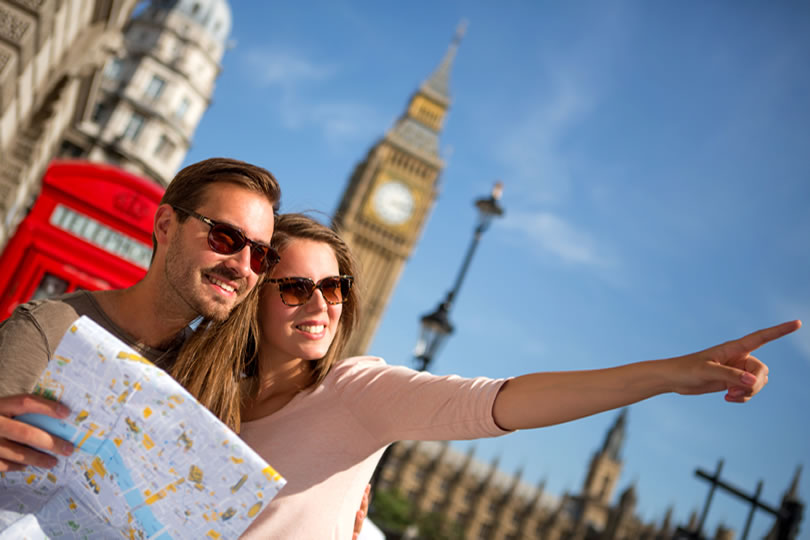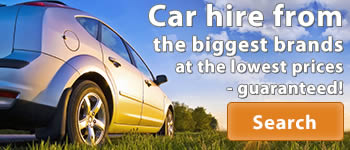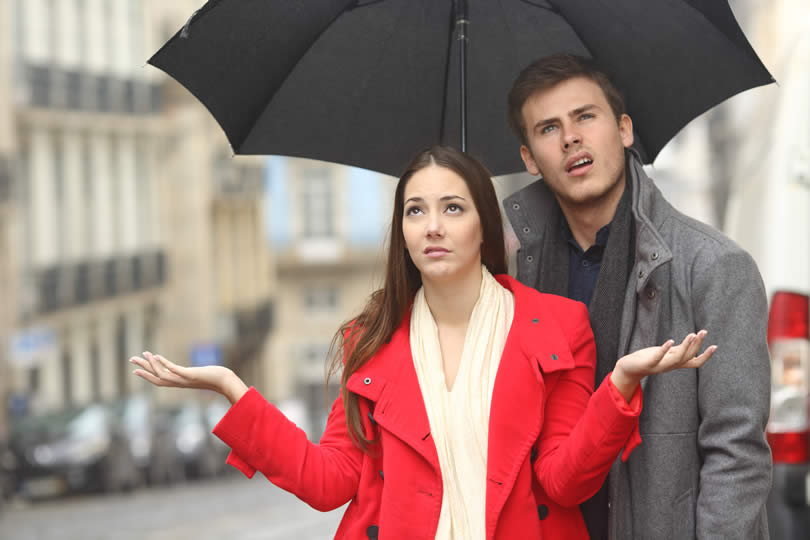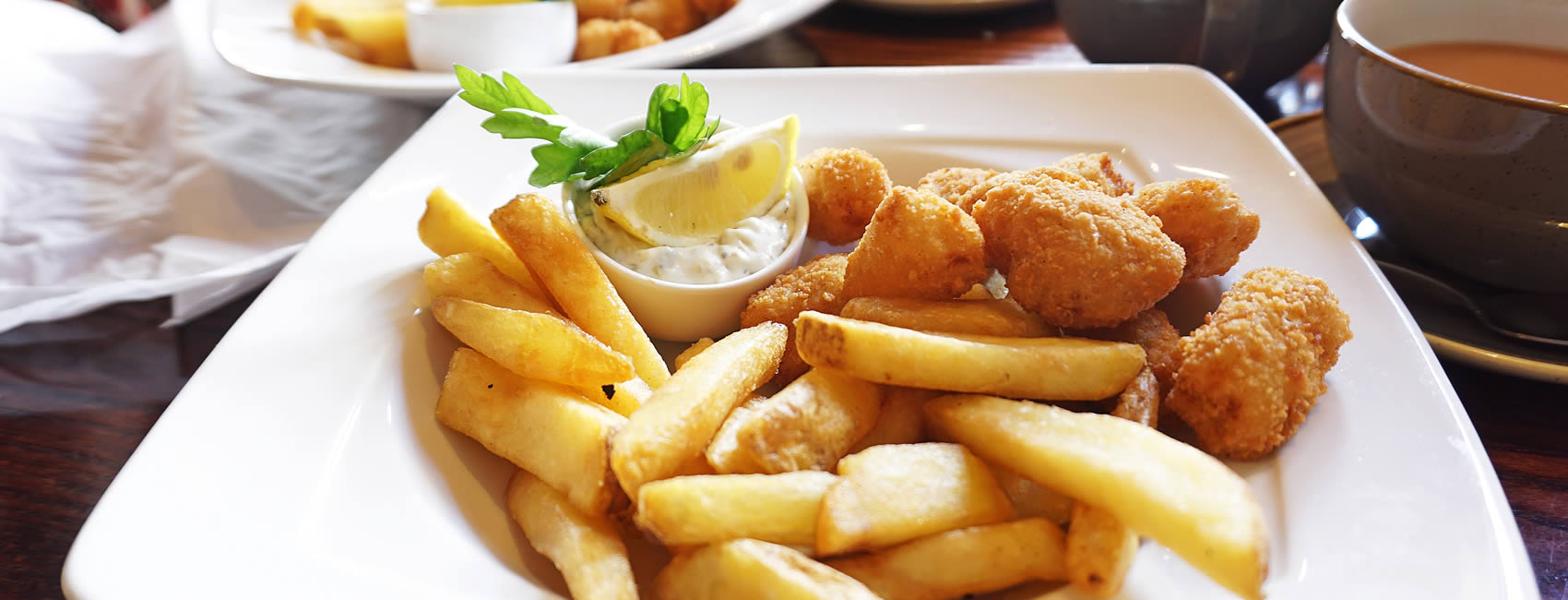Travel Tips and Hints UK
Tips for First Time Travellers to the UK
So you’re making a first time trip to the UK? Prepare yourself for a truly unforgettable experience… but whilst you do, get yourself fully prepared in every other way with this comprehensive guide that features the best travel tips, money saving hints and even fun facts to help get you through.
The United Kingdom is one of the most culturally diverse and richly historic places on earth, with extreme and varied natural landscapes, charming rural areas and vibrant global cities. Our writers have travelled the length and breadth of this country and are therefore fully equipped to give you a proper low down of the tips and hints that you actually need to see you through a trip to this so-called ‘sceptred isle’!
In this Article
- 1. How many constituent countries ?
- 2. How many languages ?
- 3. What’s the currency ?
- 4. Public Transportation and Driving in the UK
- 5. What about Religion ?
- 6. Cultural Etiquettes, Smoking and Tipping
- 7. How about LGBT rights ?
- 8. A mistake is to stay solely in London !
- 9. United Kingdom Drinking and Eating
- 10. National Health ?
- 11. Is it fine to talk openly about politics ?
- 12. Wheather ? Which time zone ? Imperial or Metric System ?
Four Constituent Countries
First off.. are you confused by the many names that are in use, such as England, UK and Britain? Well don’t worry you’re not alone, visitors to the UK are often perplexed by how the constituent countries make up the country. The UK has four constituent countries; England, Wales and Scotland (together forming Great Britain) as well as Northern Ireland, which makes it the United Kingdom. Furthermore, Scotland, Wales and Northern Ireland have devolved governments, which means they are still a part of the UK but govern themselves to some extent.
In case you ever need it, the official name for the country is the United Kingdom of Great Britain and Northern Ireland.
The Republic of Ireland (ROI) is a completely different country to the UK, but because Northern Ireland is part of the UK, the ROI is the only country with which the UK has a land border with.
Languages spoken in the UK
There are many officially recognised languages spoken in the UK, the main being English, followed by Welsh, Cornish, Ulster Scots, Irish and Scottish Gaelic… although for some the Norfolk dialect alone seems like another language!
There are literally hundreds of dialects in the UK that vary according to geography as well as to socio-economic class. In fact, nowhere in the world is your social class defined so much by your accent. In terms of geography an accent can change in just a few miles. Up north in particular you can drive 20 minutes (from Manchester to Liverpool for example) and find they speak with an entirely different accent and even have very different words for the same things. In different cities and towns in the UK the names for a bread roll for example, include; cob, barm, bun, bin-lid, muffin, bap, huffa and sub.
Currency – Pound Sterling

Some bank notes in Scotland and Northern Ireland have been printed for use in that constituent country.
They are legal tender all over the UK, but not everywhere is happy to accept them so try to spend them in Scotland or Northern Ireland before you leave.
Public Transport and Driving
The UK has an extensive public transport system which includes trains, trams, buses, coaches and even river boats. But be warned, public transport is not cheap in the UK. Read our ‘UK Travel Tips to Save Money‘ guide for how to navigate the public transport systems for less.
Driving in the UK is on the left. As a pedestrian this means you need to remember to look right when you cross the road. If you hire a car and do do some driving in the UK remember that this means giving way to the right at a roundabout, and if you haven’t encountered a roundabout before it can only be described as a free flowing, circular junction.
Whether you hire a car, buy a car (cars are cheap in the UK) or use public transport, it’s much better to explore the country on your own terms. Tour companies will convince you to stay in a London hotel and take days trips out of the city. This is a very, very costly way to explore the UK.
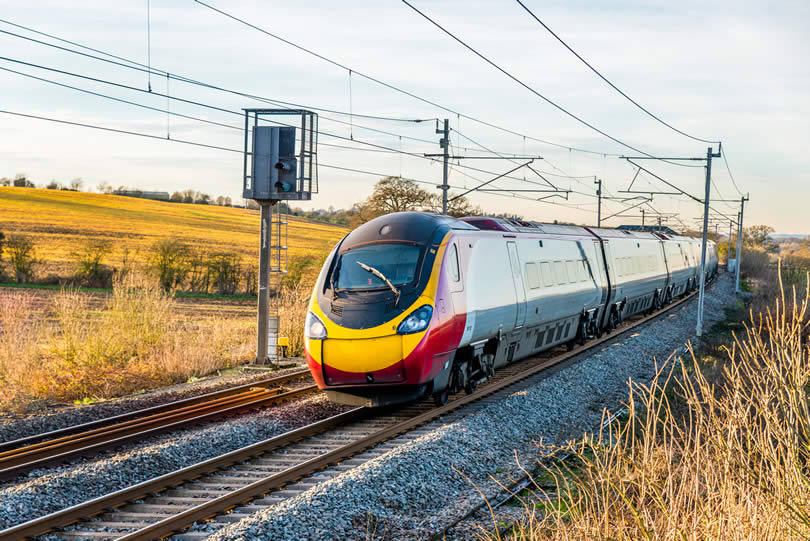
Religion
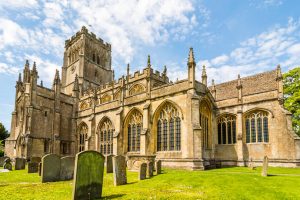
The main state religion in the UK is Church of England, a form of Christianity. In the last Census (a once every ten years’ questionnaire handed out to every British household), it was found that 59% identified as Christian, 25% had no religion and 5% were Muslim.
There are also Sikhs, Hindus, Buddhists, Jews, Catholics and many more religions practised in the UK. The UK has a strong sense of religious freedom allowing all citizens and visitors to practise freely, although for the most part, people don’t practise at all. Despite 59% identifying as Christian, only just over 10% go to church. Apart from visiting some old churches, abbeys and cathedrals, religion is unlikely to have a huge influence over your time in the UK which is an increasingly secular country.
Cultural Etiquettes
Cultural etiquettes in the UK vary greatly depending on where you are and with whom you are speaking. Posher types may have strict rules on dress code, and how to drink a cup of proper tea, whilst most folk are down to earth and the worst you can do is not buy a round at the pub.
Unlike much of the continent if Brits upon meeting, they do so just once on one cheek. Men tend to shake hands with each other or sometimes just pat each other on the back. The Brits are far less tactile than their European counterparts and if you have already travelled through Spain or Italy you’ll notice the lesser amount of physical contact between individuals.
Smoking
The smoking ban has been in force in Britain since 2004 and despite much naysaying from hardcore smokers at the time, it has become largely accepted and has meant the UK has seen a dramatic drop in the numbers of smokers. Smoking however is socially acceptable in pub gardens and at outside seating in restaurants where it is still commonplace.
Tipping
Tipping is not mandatory but is certainly expected in higher-end restaurants. Tips of around 10-15% are normal. Tipping is not expected in pubs, although it is customary to buy the bartender a drink if you are in the pub for a long stint. They will normally ring a drink through the till, charge you and enjoy it after their shift!
LGBT rights
When it comes to LGBT rights, the LGBT community are well-protected in legal terms, and within large cities such as London enjoy a largely hassle-free lifestyle and plenty of gay friendly bars and clubs to visit and very open-mind cultural views.
Once travelling out of London, especially in rural or working class areas, it’s more likely that you may encounter intolerant views however. As with anything it’s all about what you feel comfortable with and judging each situation as it comes. It’s more than normal to see two men holding hands in a street in Central London, but few would do this in a Working Man’s Bar in the Northeast.
Don’t Stay solely in London !
Another mistake is to stay solely in London, just because that’s where you think the top attractions and landmarks are. This would be a mistake as there are so many gems in this country.
Starting at the northerly tip from the Scottish Isles down to the Highlands, Loch Ness, historic Edinburgh, arty Glasgow, the industrial cites of the North, the Lake District, the Peak District, the multicultural Midlands, the valleys and mountains of Wales, the rural area of the Cotswolds, sea, surf, scones and legends in the West Country and the whole of the sunny south coast of England.
That’s before you’ve even taken a ferry or flight to Northern Ireland, home of the Giant’s Causeway and gateway to exploring the Republic of Ireland.

British Cuisine – Drinking
Eating
So ‘typical’ British cuisine includes Fish & Chips, Hotpot, Steak and Kidney Pie, Gammon and Chips and good old Roast Beef… or so you’ve been led to think? Whilst these are still popular choices, as a multicultural country, the top ten meals in the UK are surprisingly ‘un-British’.
Indian food is extremely popular in the UK where Anglo-Indian dishes such as Chicken Tikka Masala was actually developed in Glasgow in the 1970s. Chinese fayre is also extremely popular, as is Thai and Italian, particularly in the form of pizza and pasta such as Spaghetti Bolognaise and Lasagne. In any UK high street you will find the typical fast food names from America including Nandos, Subway, Pizza Hut, McDonalds, Burger King and increasingly even Taco Bell.
One of the most popular places to eat in the UK is the pub, where you often find a mix of traditional British dishes such as fish & chips or sausage & mash as well as curry, noodles, pasta and roasted meats.
Veganism and vegetarianism is rising in the UK and almost all establishments will be able to offer you a choice and all chains should also be able to show you a menu with full dietary information. This also means that those with allergies, like coeliac, will find eating out in the UK easy. This may be trickier in independent cafes or restaurants in rural locations, but dietary queries in urban cities are normally fine.
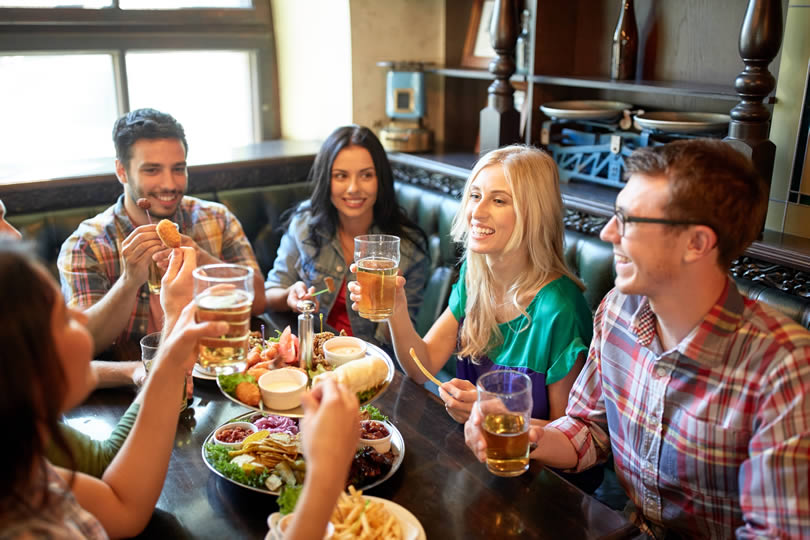
Drinking
Drinking is practically a national pastime in the UK and is the one activity that unites the whole class system and political spectrum. Pubs serve lagers, real cask ales and ciders on tap as well as bottled beer, cider and a large range of spirits.
In restaurants and pubs (as well as at home) Brits drink copious amounts of wine too. Gin, once the scourge of 17th century London, is enjoying something of a resurgence and you can expect to find up to ten gins on offer in any pub. Despite being bad for your health, not keeping up with the ’rounds’ or shots may leave you open to being labelled a ‘lightweight’. Not that you should give into peer pressure of course!
Expect to be given a rather strange name
Wherever you go in the UK, be it a pub, cafe or clothes shop, expect to be given a rather strange name or term of endearment. In the US almost every shop, bar and café server will address you as sir and madam, same in France too (monsieur/madam). In the UK however, it could be anything from guv’nor (in an East End pub perhaps) to duck (more common up North), hen (a Scottish term of endearment) to darlin’, sweetheart, pickle, love, treacle, dear and even ma’am in a posh hotel.
The name you may be given is part of something called ‘banter’. This is a way that British people talk to each other that includes a fair amount of mickey-taking, even though it is meant in a completely light-hearted manner. The more someone takes the mick out of you (teases you), conversely, the more they like you.
In fact at all times and wherever you travel you need to be prepared to have a good sense of humour. Comedy is another national pastime in the UK, especially the sort of comedy that sees the comedian making themselves the butt of the joke, whilst still managing to put down everyone around them too. Try not to get offended by jokes – offensive jokes are part of UK culture.
National Health Service – Drug Culture

Those from the EU with an EHIC health card will not receive a bill for immediate medical care, but those outside of it may receive one when they return home. Make sure you have comprehensive travel insurance before you leave.
In many cases you may be able to buy what you need from a Pharmacy (drug store). In the UK pharmacists are highly trained and can often advice you about what you need. As well as independent and small-chain pharmacies you can also find them in large chain stores including Boots and Asda.
Drug culture in the UK is alive and kicking but all visitors are advised to avoid drug taking at all costs as possession can carry the risk of a fine and even a prison sentence. Wandering around certain parts of London you may be led to believe that marijuana has become legal there, notably Camden and Brixton, but remember always that it is not yet legal and you could ruin your trip should you choose to indulge.
Useful Numbers
Useful numbers in the UK include 999 or 112 for police, ambulance, fire, coastguard or mountain rescue. The talking clock is 123, non-emergency police matters 101 and NHS (non-emergency) advice line is 111.
It’s nigh-on impossible now to find a public pay phone in the UK. Remember also that the UK is one of the few countries in the world to use a three point safety plug, so you’ll probably need an adaptor for your own phone charger.
Open about Politics
The British are a political lot and it’s usually fine to talk openly about politics. You’ll find that Scottish independence or Brexit splits people literally in half, whilst anti-Trump sentiment appears to unite most Brits.
On the whole British people are hard to offend, they’re tough-skinned and enjoy a good joke, even when it’s at their expense. There are certain sensitive issues like the troubles in Northern Ireland and immigration, but generally Free Speech is tolerated in the UK and most are happy to politely debate with you if they disagree.
If in doubt refer to someone as being British and not English. Calling a Scots or Welsh person ‘English’ could offend, although it’s unlikely anyone would get angry with you, they would more likely take the mick out of your ignorance!
Check the weather
Checking the weather on an almost hourly basis is all part of life in the UK. Any given day can start with thunder and end with blazing sun with everything occurring in between. Not only is checking the weather necessary but talking about it incessantly is practically a national pastime. The best place to check the weather is either BBC Weather or the Met Office online.
As a result of this insane weather, remember to pack clothes for every eventuality including wellies, a warm jumper and a raincoat as well as a sun hat and sun cream.
Be warned that winters in the UK are wet and cold and get colder and significantly wetter the further north you go. Snow is common in winter, but usually after Christmas rather than before.
Also be prepared that in summer time, especially on the south coast, it can reach higher temperatures than you’d expect it to. However take note that air conditioning is not nearly as commonplace as it is on the Continent.
Be further prepared, that for a country with such changeable weather, the public transport system appears entirely unprepared for it, with trains cancelled because of snow, wind and sometimes even just because of ‘leaves on the track’.
Time Zone
Unlike the US, Canada and Australia, the UK only has one time zone which is Greenwich Meridian Time (GMT). However for summer the whole country switches to British Summer Time (BST/GMT+1), which involves moving the clocks forward an hour in spring (they then go back an hour in Autumn). This is also known as daylight saving hours.
Imperial or Metric System ?
The UK has been in the process of moving from the Imperial weight system to the Metric weight system over the last 30 years. Older people may still make references to certain items in imperial, but commercial items will usually be listed in metric.
Liquids such as beer however are referred to as pints and half pints in pubs whilst milk bottles will have both measurements listed. On the roads, the Brits still use the imperial system, but combined with the metric system. Road distances are in miles with metres for shorter distances.
When British people talk about their weight they refer to stones and ounzes and scales will give both kg and stone/ounze results. Same with height, Brits still tend to talk in feet and inches. Everyone refers to the weight of newborn babies in pounds too, and this doesn’t look likely to change anytime soon!
Conclusion
Most of all- enjoy yourself. A holiday to the UK is a once in a lifetime trip and the longer you spend there, the more varied and diverse you’ll realise it is. Make sure you pack a good sense of humour and use it wherever you go, it can come in more handy than you think! Almost as handy as a raincoat- which is essential.
Travel tips to save money
The UK is a brilliant place to visit, but it’s not cheap by any stretch of the imagination. However a buoyant economy does mean that there’s always plenty of competition, which means savvy travellers can make good savings on eating, transport, accommodation and attractions when they shop around. Saving money when holidaying in the UK is all in the planning. Read this simple guide to saving you money when you travel.
Save on UK Railways and Coaches
UK railways are among the most expensive in the world. Especially if you are travelling in and out of London. The best way to save on railways is to travel outside of peak times (after 9:30 am) and to book designated seats on scheduled trains in advance using companies such as Megatrain.
The other choice for those spending a long time travelling the UK is to buy a railcard. Those under 25 can buy a Young Persons Railcard, those with families; a Family and Friends Railcard, those only exploring the south; a Network Southeast Card, over 60s; a Senior Railcard and for couples; a Two Together Railcard.
Alternatively travellers can buy a BritRail Pass from your own home country for unlimited UK rail travel. There are loads of different BritRail Passes available whether you want the whole of the UK, just London, just England or just Scotland and whether you want a flexible pass for use over a month or consecutive passes that you can use every day for a set timeframe. A BritRail Pass also offers cheap entry to many attractions including 2-4-1 deals.
Coaches
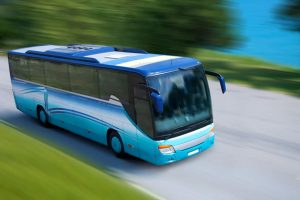
Budget coach companies such as MegaBus have more limited routes but are significantly cheaper. These are a great option for travelling between major destinations such as Liverpool to York or London to Brighton.
Take a plane
Weirdly, flying can be cheaper than getting a train if you’re headed somewhere such as Edinburgh from London. It’s also a hell of a lot faster. Take the time out to compare the costs of budget airlines (and travel to and from the airports to the city centre) to get the best deal in comparison to trains which are very costly on long journeys.
Easy to walk around
Once in a city or town it’s usually easy to walk around. Most historical city centres are small even if the town or city sprawls out far beyond. This means that main attractions and landmarks tend to be easily reached on foot.
London is obviously too big to walk around, but to save money buy an Oyster Card straight away as you arrive. This is a prepaid travel card that will save you a lot of money compared to cash prices on the tube or bus.
Save on Eating and Drinking
Eating a big breakfast is a clever way to save money on lunch. Depending on where you stay most hotels in the UK offer an inclusive breakfast that tends to include a hot buffet full of filling food such as eggs, meat, beans, toast and hash browns. Even if your hotel doesn’t serve breakfast is easy to find a ‘greasy spoon’ café (traditionally a worker’s cafe) which sells generous portions of home cooked food for much less than a tea room or tourist café.
Save money by getting a cheap lunch; you can usually pick up a roll or sandwich for less by going to a supermarket or a cheap bakery (as opposed to a café). Alternatively make a packed lunch. In the UK you are never far from a nice green space to enjoy a cheap picnic lunch.
Then have a big dinner, cheap options include fish and chips out of the bag with a wooden fork. This is much cheaper than eating in and is a common thing to do in the UK.
Indian and Chinese food also tends to be cheaper than British fayre, especially for those in groups who can save by sharing a few dishes.
Avoid buying any food, drink, snacks, coffee or alcohol by major train stations or attractions, as these will always have a premium price tag. If you need a coffee and you’re in a tourist spot try to find a McDonalds, which is usually the cheapest choice. Also fill your own water bottle at the hotel each morning saving you up to £3 a day on bottled water.
Alcohol is notoriously pricey in the UK, but there are ways around it. The Wetherspoons chain is a cheap dead cert. Every town or city has at least one and you can always get a cheap meal and a cheap pint in there.
Another choice is to look out for Happy Hour deals, which usually involve 2-4-1 cocktails between 5-7 pm, or a similar deal. Gastropubs will always be more expensive than so-called ‘old man pubs’, a term used to describe a pub that has avoided being bought by a chain or having any decor upgrades in many years. These kinds of pubs are also sometimes referred so as ‘spit and sawdust’, as this is what used to be put on the floor to soak up the beer. Supermarket alcohol is considerably cheaper than drinking in a bar, so one option is to start your evening in your hotel room with a shop-bought bottle of wine or even at a park if the weather is sunny.
Travel out of UK School Holidays
Travel outside of the UK school holidays to save some serious money on accommodation and flights. It also means less queuing at attractions too. In the UK there is a six-week summer holiday from late July to early September and two week holidays at Christmas and Easter with three ‘half-term’ holidays in between these points.
Stay off the beaten track
Spend more time off the beaten track – York, Norwich, Birmingham, Manchester, Cambridge, Oxford, Canterbury and Colchester all have as equally fascinating histories as the big boys of London and Edinburgh, but accommodation and cost of living is considerably less.
If you want to save money get London done and dusted as quick as possible and spend more of your time outside of the Big Smoke. You’ll get to know the real UK in small rural towns and villages, where you’ll find cheap b&bs, pubs and cafes.
Cheap Accommodation
Cheap accommodation is easy to find in the UK if you know where to look. Chains such as Travelodge and Days Inn offer incredibly cheap rooms provided you book in advance or if you are prepared to stay out of the city centre a little. Hotel comparison sites offer good deals, but it’s also worth checking with the hotel directly as they can often beat these deals themselves.
Hostels are a low cost way to stay in the larger cities and often offer double, triple and quad rooms which can be used by families or groups, so that you’re not actually sharing a room with a stranger.

The cheapest accommodation in the UK is camping, and some campsites do offer pre-erected tents. Another choice is a caravan resort which offers very cheap last minute deals, especially outside of the school holidays. Very canny holidaymakers can even find weekend caravans holidays at Parkdean or Park Resorts for under £100 which includes entertainment and leisure facilities too. This is a good way to get out of the large cities for the odd weekend and discover areas such as Devon, Dorest, Suffolk and Kent.
Attractions for Less
Discount passes for attractions can be a big money saver if chosen well. These are usually annual passes, but even if you are covering lots of attractions in a two-month trip you could still make big savings.
First consider which kind of attractions you are likely to visit most. Those most interested in castles should get an English Heritage pass, those interested in manor houses should go for National Trust. Those with kids could consider an annual Merlin pass which will give you entry to Legoland, Sealife, Madame Tussauds, Warwick Castle, Alton Towers, Chessington, Thorpe Park, London Eye and London Dungeons.
Better still, make a list of all the free museums in the UK. Free to enter museums are common in small towns and villages, where entry to a small local history museum is either free or just a couple of pounds.
In larger cities however, you’ll be pleasantly surprised to find that the 50 UK ‘national’ museums are completely free. Some of the best free museums in London include: The Science Museum, the Natural History Museum, the V&A, the National Gallery, the National Portrait Gallery, Museum of London, The Tate the Tate Modern and the British Museum.
If you’re visiting London the chances are you will want to see a top West End show such as The Lion King, Les Miserables or Mamma Mia. However tickets to these shows are often expensive. A good way to see the shows for less is to either book a matinee (afternoon) performance, or to visit the TKT booth in Leicester Square in the morning to get heavily discounted tickets for shows later that day.
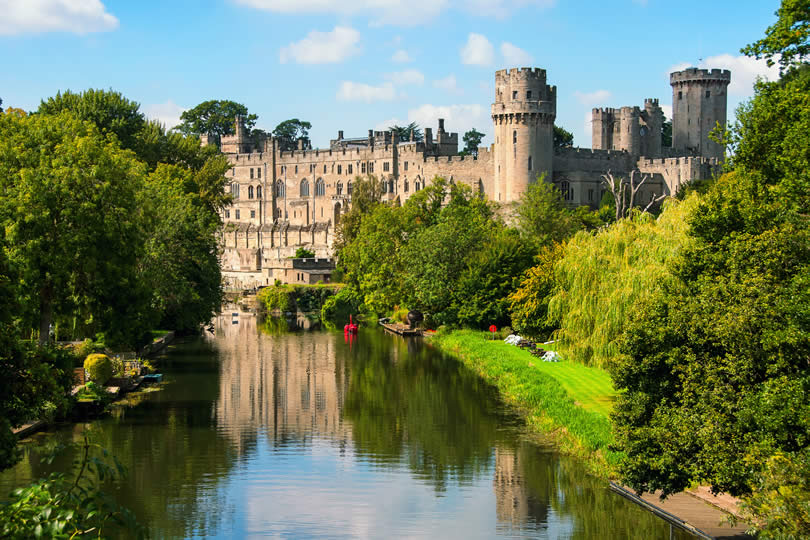
Quick ferry to the continent
Should you fancy a quick trip over to the continent during your stay in the UK, the cheapest way by far is to be a foot passenger on a ferry from Dover to Calais.
Changing Money
The UK pound is in bad shape at the moment, which means wherever you are coming from you are likely to get a lot of bang for your buck. That being said always avoid changing up money at the airport. Either do it at home or do it at a UK Post Office when you arrive.
Taking out money from an ATM is usually free, especially if you do it at a High Street bank, but beware of ATMs (called cash points in the UK) in shops, as these often charge for withdrawing.
45 Mind-blowing facts about the United Kingdom
Want to know more about this unique island nation? Read this essential collection of fun, mind-blowing and just plain crazy facts about the United Kingdom.
1) At the height of the British Empire in the 18th century, the Kingdom ruled over a quarter of the globe’s inhabitants and 20% of its surface.
2) The British currency, the Pound, is the world’s oldest currency, although it was changed somewhat in 1971 when it was decimalised.
3) The UK is the only country in the world that doesn’t have to put the country name on postage stamps, and that’s because it was the first country to ever issue them.
4) The stone circle at Stonehenge has been there for at least 5000 years and is therefore older than the Great Pyramids of Giza. Historians still aren’t 100% sure of why or how they were put there.
5) English is the international language of the sea, but is the third most spoken language on Earth.
6) The UK is home to some pretty zany festivals. This includes annual cheese-rolling in Gloucestershire, mud-running on Boxing Day in Essex, worm-charming in Devon and a gurning world championship in Cumbria.
7) Wherever you are in the UK you are never more than 75 miles from the coastline.
8) The UK was the birthplace of the Industrial Revolution thanks to the invention of steam engines and tool machines. It was also the first country to build railways and a canal system.
9) The UK is the only country on Earth with four international soccer teams; Northern Ireland, Scotland, Wales and England.
10) The UK is home to some seriously funny place names including Bell End in Worcestershire, Twatt in Orkney and Scratchy Bottom in Dorset.
11) It is also home to one of the world’s longest place names, Llanfairpwllgwyngyll-gogerychwyrndrobwlllllandysiliogogogoch in Wales. The name translates into English as ‘St. Mary’s Church in the hollow of the white hazel near a rapid whirlpool and the Church of St. Tysilio near the cave’.
Royal facts:
12) The Queen owns 1/6 of all the World’s surface.
13) UK citizens who reach the age of 100 get a letter from the Queen, who, in her 90s, isn’t far off her own centenary!
14) The Queen is the longest living British Monarch of all time.
15) Windsor Castle, the official residence of the Queen, is the oldest and largest occupied castle in the world.
16) Having just overtaken her great-great Grandmother, Queen Victoria, Queen Elizabeth II is now the longest reigning monarch too.
17) The Queen is the only person in the UK who doesn’t need a passport for travel. Prince William and Prince Charles never travel on the same plane so that the UK doesn’t lose two heirs in one accident.
Crazy UK politics:
18) Despite being a stickler for rules, the UK is one of only five countries in the world with no written constitution.
19) On June 23rd 2016, 52% of those that voted, voted to leave the European Union, whilst 48% voted to remain. The 52% that voted to leave however only made up 37% of the population.
20) Many UK laws are old ones that have simply never been changed. This technically means that it is still illegal to die in the Houses of Parliament, it’s treason to place a stamp upside down on a letter and that you can’t eat a mince pie on Christmas Day.
London Facts:
21) There are over 300 languages spoken in London, this is more than any country on Earth.
22) London is home to the British Library, which is the largest library in the world with a catalogue of 170 million items.
23) 30% of Londoners were born outside of the UK, which is why it’s one of the most stunningly diverse places on Earth.
24) East Londoners have their own distinct dialect which includes the use of Cockney Rhyming Slang. In Cockney Rhyming slang a noun will have a second term/phrase for it which rhymes (‘stairs’ are ‘apples and pears’). However the rhyming part of the phrase is frequently dropped, which means it has no obvious meaning. For instance ‘hair’ is called ‘Barnet Fair’ (named after a famous old fair in Barnet), however the second part was dropped, which means hair is often referred to simply as a ‘barnet’, making seemingly no sense to anyone but those in the know! See if you can work these ones out – brahms and listz, dog and bone, trouble and strife, three blind mice, skin and blister, (*answers below).
25) One of the city’s most recognisable landmarks, the London Eye, is the world’s biggest observation wheel at 443 feet high.
26) The Tower of London was built in the 11th century at a place that was then, outside of the city boundaries. This great fortress has six ravens in residence at all times by decree of Charles the II, who worried that without the ravens in residence the tower would crumble and the British Monarchy fall. Just in case, they keep eight ravens at the Tower at all times. The wings are even clipped to ensure they don’t get away!
27) Contrary to popular belief, Big Ben is not the name of the clock tower at the Palace of Westminster, but it’s the name for the Great Bell inside which is 2.29 metres high.
28) It was the Houses of Parliament that Guido Fawkes and Robert Catesby tried to blow up on the 5th November 1605. That led to the celebration of Bonfire (Fireworks) Night in the UK on the same date every year.
29) There are no less than four UNESCO World Heritage Sites in London; Royal Botanical Kew Gardens, the Tower of London, The Palace of Westminster and Maritime Greenwich.
30) The Shard is now the tallest building in London at 310 metres. It is the fourth tallest structure in Europe.
Scotland facts:
31) Scotland is home to one of the oldest settlement ruins the UK, Skara Brea in the Orkneys, which was inhabited over 5000 years ago.
32) Scotland was never part of the Roman Republic even though Britain was for nearly four hundred years.
33) Contrary to popular belief, Hadrian’s Wall, built by Emperor Hadrian to keep the ‘barbaric’ Scots out of Britain during Roman rule, is not on the border between Scotland and England, but is in fact some miles south.
34) In Scotland you can marry without parental consent at age 16 (it’s 18 in England and Wales). This made Gretna Green, a Scottish border village, synonymous with eloping English teenagers being the first place they got to in Scotland on the old coaching route that ran from London to Edinburgh.
35) Scotland is home to the UK’s biggest body of freshwater, the Loch Ness. This lake is the supposed home of the legendary Loch Ness Monster, endearingly termed Nessie.
36) The Scottish are renowned engineers, having been the home of some of the greatest inventors of all time such as John Logie Baird (television,) James Watt (steam engine), Alexander Graham Bell (telephone), Alexander Flemming (penicillin), Kirkpatrick Macmillan (pedal bike) and Robert William Thomson (pneumatic tyre). Without Scottish engineers the world would be a very different place!
37) Scotland is now a world leader when it comes to renewable energy. In 2015 Scotland provided 97% of household energy through wind power.
38) Golf was invented in Scotland in the 18th century and it is still one of the country’s national games today.
39) The shortest scheduled flight in the world is two minutes. It’s on the 1.5 mile route from Westray to Papa Westray in the Orkney Islands. Although scheduled for two minutes, actual flight time is more like a minute.
Wales Facts:
40) There are more castles per square mile in Wales than anywhere in Europe. Sadly the reason for their existence was mainly to control the Welsh by English overlords.
41) There are four times as many sheep in Wales than there are people.
42) Once a threatened and dwindling language, Welsh is now on the up with 25% of the population able to speak it.
43) Scotland may have golf and England may have football, cricket and rugby, but lawn tennis was invented in Wales in 1873.
Northern Ireland Facts:
44) Game of Thrones is filmed in Northern Ireland and during filming employed more locals than the civil service does.
45) Giant’s Causeway is one of the most popular tourist attractions in Northern Ireland. These hexagonal columns of basalt may look manmade but they were created over 60 years ago by a volcanic eruption.
(*Cockney rhyming answers: Pissed (drunk), telephone, wife, ice, sister.)

